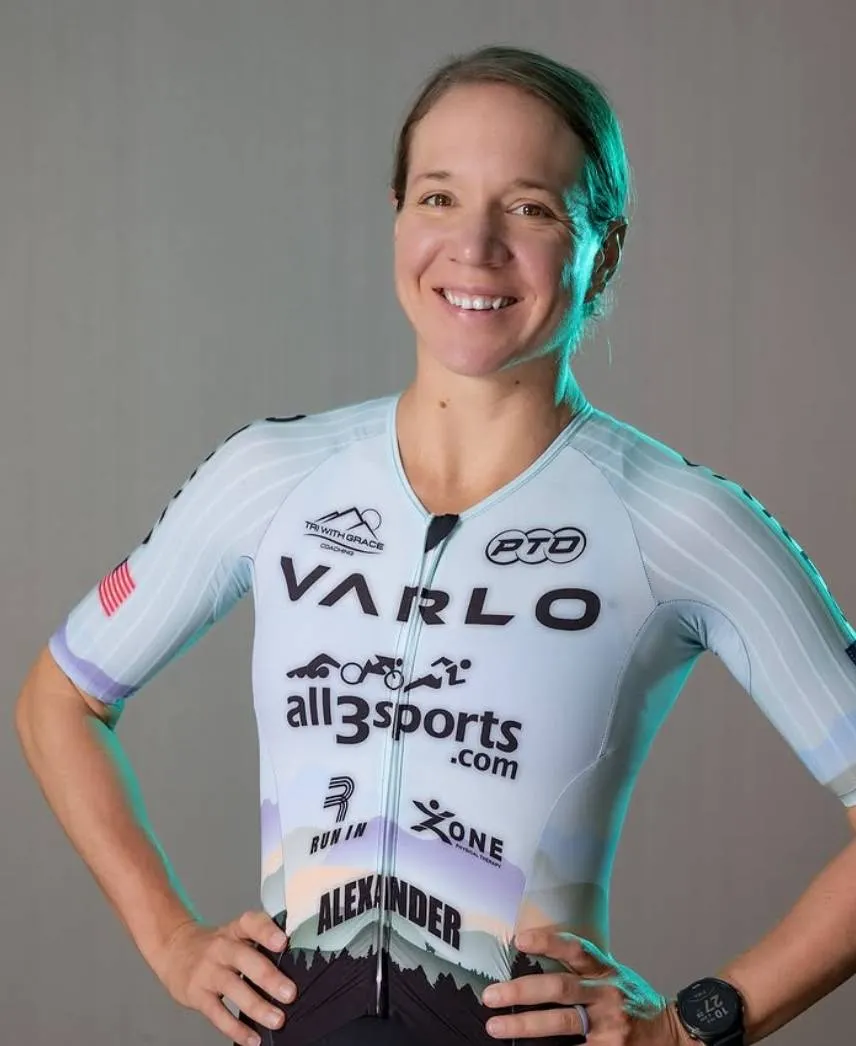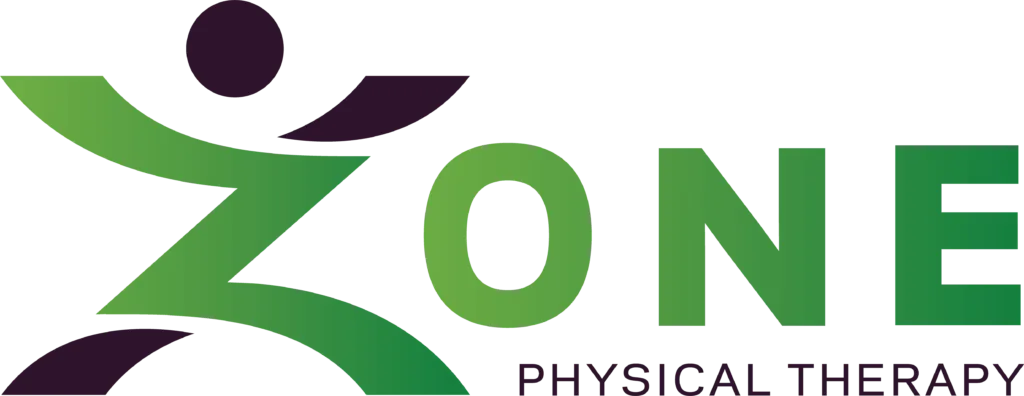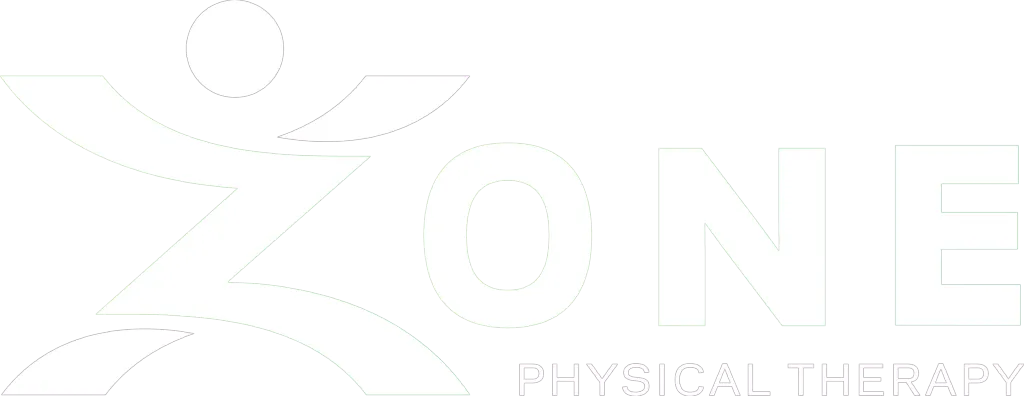Zone Physical Therapy
Grace Alexander

Guest Name: Grace Alexander
Guest Credentials: Professional Triathlete, Triathlon Coach
Discussion Details: This discussion is more of how Grace chose to work with me, rather than the other way around. The discussion is around working with a PT who understands endurance sports.
Benefits of Watching: Learn the insight of a professional triathlete in what she is looking for in her team for taking care of her body so she can perform at her best. Her potential clients would hear her mindset for taking care of her body.
Address of Guests’ Business: https://www.triwithgrace.com/
Scott Kaylor: All right, I’m here with Grace Alexander. She is a professional triathlete and she was gracious enough to give us a few minutes of her time to tell us about her experience here at Zone. Thanks for joining us, Grace.
Grace Alexander: Thanks for having me, Scott.
Scott Kaylor: Well, before we dive into what it is to be a professional triathlete, I would love to first hear—how did you hear about Zone? Because I know you’re newer to the area. Tell us about that.
Grace Alexander: Yeah, so luckily I have a friend that has been in Greenville for 15 plus years. She’s very active in the triathlon community, so when I knew I was moving here, I immediately reached out to her and asked her for just any, uh, like a list of people that she used to help her triathlon training—and that included a PT. So she immediately said that you were the best in the area, and I took her advice pretty seriously because she’s been at it for a while. And so yeah, I came to you, I think within the first week of moving here, and have been seeing you bi-weekly ever since.
Scott Kaylor: Yeah, yeah. We have a mutual friend, and so it just worked out well for a transition of care from your PT where you used to live to here, because we were able to communicate before you even moved to the area. So that was fun to get to know you a little bit on the front end—hear about what your upcoming race schedule was so that we could go ahead and start formulating a plan and hit the ground running.
So, you have a really unique job that you get to compete as a triathlete. For those that aren’t familiar, it’s swim, bike, and run all in one event. So tell us about some of the unique demands that that places on your body, and just the time demand from your week standpoint.
Grace Alexander: Yeah, so I come from a swimming background and a little bit of a running background, but the bulk of my experience was swimming in college. And with swimming, you’re a lot less likely to develop injuries because it’s much lower impact than running and a little bit cycling. So when I started triathlon training, I found that my body was developing a lot more aches and pains—especially when I was picking up my run volume and intensity.
So, it’s been a bit of a challenge for me to recognize what my body’s telling me and what pains are okay to run through, and what pains need addressing pretty quickly. That’s been a learning process, and that’s where seeing a PT has been really helpful—just as almost like peace of mind. Because I use a lot of your feedback to help my confidence—if I don’t see that you’re freaking out about something I’m freaking out about, I feel a lot better about it.
But training as a triathlete, I’ve mostly had issues with overuse injuries—particularly with the run. And I’m actually currently dealing with some hip stuff that affects the bike a little bit, and that’s what we’ve been working on a lot.
So with my job being my body, pretty much, it’s definitely been worth investing in a PT so that I can move forward with my training and day-to-day life, and really push my body to be the best athlete I can be—and not have to worry about aches, pains, and injuries preventing me from doing what I need to do to get to the start line.
Scott Kaylor: Yeah, thanks for sharing that. Certainly your hip pain—or “niggles” as we like to call them in the endurance world—are the thing that brought you to see us. You had a couple of other little aches and pains. What are some of the other things that you’ve had to deal with that another triathlete, who’s hesitant to come see us, could maybe relate to—that we’ve been able to address?
Grace Alexander: Yeah, I have a lot of occurrences with calf and specifically soleus overuse injuries. In the past, I’ve been afraid to put too much work and stress on them because I’m already stressing them in training. So we’ve been working on exercises to strengthen my calf and my soleus.
I also have hamstring tendinopathy, so that’s been an issue in the past, but I’ve been able to work through that—and now it’s getting to a point where it’s completely manageable.
A little bit of shoulder pain with open water swimming specifically, but again we’ve been working through that and have been able to manage it—especially as my pool switches to long course, which tends to aggravate it a little bit. Yeah, all of it’s been trending better.
And of course, this is always a process—it’s not something that after one visit you’re fixed, as much as we want that. That’s something you learn being an athlete.
Scott Kaylor: Yeah, well thanks for sharing that last piece. I wish I could just snap my fingers and help everyone feel better instantly—but the cool thing is that we’ve made some really big gains with you out of the gate. You’ve set some PRs in your running performances already at a couple of different distances, and your bike splits have been faster than where they were in some of the same races this year compared to last year.
So, still able to make progress. And I think from my perspective, I get to have fun because you have a coach. For some people, I wear lots of hats—I get to be coach and PT and cheerleader—but when you have a coach, I get to be more of a fine-tuned precision person, and just come in and give you a couple of little things to tweak your training.
Especially where you are right now in peak race season, my job is not to give you a whole bunch of different things to challenge your body—it’s to go, “How can we make the most efficient changes to help pain and performance without throwing a big wrench in the program you and your coach have planned?”
It’s an honor to have your trust to be able to partner with you and work with you on that. And for anyone watching, I want to try to change as few things as possible with athletes that come see me—unless they need to be changed. Because you’re already very successful at what you do, so you don’t need me to reinvent the wheel—you just need me to put my thinking cap on and go, “Where can we make some little tweaks so that your soleus isn’t bothering you in mile 11 of a 13.1-mile run,” or help that transition from the bike to the run with your right hip.
That part’s a lot of fun for me—where I get to come in and figure those things out with you.
And it’s a partnership, right? So hopefully I’ve communicated what we’ve been working on well—but what are some of your main takeaways from our time together so far?
Grace Alexander: This is something that I think has almost been ingrained in us for the past few decades—where you’re told when something hurts to rest it, ice it, and recover that way. But I think what I’ve learned from you and from more current knowledge is that you can just modify the movement a little bit.
What I like about you is that you don’t make it feel like I need to sit out ever—you know, it’s not like I’m going to be completely sidelined for a race. It’s more about, “How can we change a little bit of what we’re doing so that you can still train in a way that moves you forward—it just might be altered a little bit.”
Scott Kaylor: If that’s your biggest takeaway, I love it. That’s one of the biggest things we’re trying to communicate—not just to the general population, but especially to our athletic population. If we just rest something, sure, people will feel better—but that muscle, tissue, joint, body, whatever, it’s all going to atrophy and decondition.
And unfortunately, when people start feeling better, they ramp up too quickly—and then we get stuck in this rinse-repeat cycle of pain and injury. You feel better, then you start over again. We want to keep that capacity high while we help things recover. That’s awesome.
So that might answer my next question, but maybe you have a couple other thoughts—what would you say you’ve found to be most beneficial or that you’ve liked the most about coming and working here at Zone?
Grace Alexander: Yeah, I guess I answered it a little bit before, but also going back to my first answer—with just confidence. Having someone to lean on. I don’t only talk to you within our sessions, but also I can text you or call you if something pops up or if I have a question about what’s the best way to do this run—should it be on soft surface, on trails, on concrete.
It’s just nice to have someone to reach out to for that sense of confidence, so I’m not worrying if I’m making the right decision.
Along with that, I’ve actually found the breathing exercises—the breathing with the exercises—to be very helpful. I think breathing is overlooked a lot, and I know that you’ve really made a point that a lot of people do overlook breathing and how much it can impact our movement.
Scott Kaylor: Yeah, for sure. We almost built this clinic around the idea of helping to restore breathing patterns. That’s probably too simplistic a way to say it, but we do value people’s ability to breathe very much. And there’s a huge benefit when we can help somebody learn how to breathe better—to get out of pain and move better.
I love that that’s also one of the takeaways you’ve had with us so far in our short time together.
So, if there’s somebody watching this video who’s still skeptical after listening to you, what would you tell them?
Grace Alexander: I would say that if you have something bothering you that’s impacting what you love to do—or even just your daily life—this is the one body that you get. If you have an opportunity to get help to make it better, it’s worth the investment. Because if you want to live a long, healthy life, you’re probably going to have to deal with these little things.
And Zone Physical Therapy has helped me deal with mine, so I’m happy to brag about y’all and hopefully help other people see that it’s worth it.
Scott Kaylor: Awesome. Well Grace, it’s been an honor to be able to work with you, and I look forward to getting to work with you the rest of this season—and hopefully many more seasons to come.
I’m going to brag on you a little bit—we’re early in the season and you already have multiple top-10 finishes at some national and international events, and you’ve got a big one coming up in about a week from the time of this recording, and then some more after that.
So best of luck to you this season. Thank you so much for your time and your trust in us here at Zone, and we’re excited to cheer you on for the rest of the season.
Grace Alexander: Thank you.


